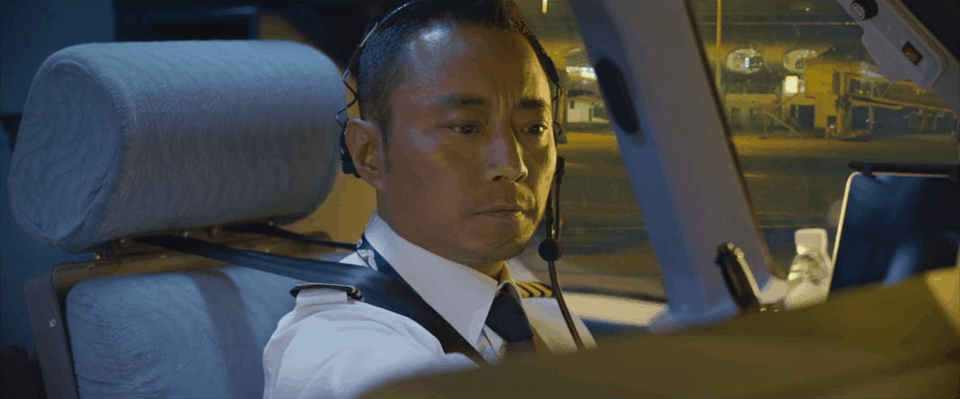The Captain (Andrew Lau, 2019)

Andrew Lau Wai-keung is perhaps the most representative Hong Kong director in the post-Handover era. An accomplished cinematographer dating back to the late 80s (most famously he shot Wong Kar-wai’s debut As Tears Go By and half of Chungking Express, and his first ever DP credit was for Ringo Lam’s City on Fire), he’s been directing for almost as long. His breakthrough hit was the Young & Dangerous series, which debuted right around the time of the Handover and almost single-handedly kept the Hong Kong industry afloat during the recession of the late 1990s (a time when many of the colony’s biggest stars had fled to Hollywood). A comic book and teen soap-inspired version of the Heroic Bloodshed sagas of John Woo and Ringo Lam, the Young & Dangerous movies featured young actors with elaborate hair going through the motions of generic plots scored with contemporary music and audiences ate them up (there are a dozen or so films and spin-offs in the series, which is excessive even by Hong Kong franchise standards). Then, in 2002, Lau teamed with Alan Mak and Felix Chong to make Infernal Affairs, the first Hong Kong movie to hit really big internationally since the Handover (depending on how you count In the Mood for Love, I guess), and the inspiration for a whole host of 21st century crime dramas, as well as the Best Picture-winning Martin Scorsese movie The Departed.
Lau’s post-Infernal Affairs work has been somewhat spotty, however, with the highlight probably being the 2010 Donnie Yen vehicle Legend of the Fist: The Return of Chen Zhen, which, ghastly title aside, is a pretty good fusion of comic book movie-making with the traditional kung fu epic (it’s kind of a remake of the Bruce Lee classic Fist of Fury, itself remade with Jet Li in 1994 as Fist of Legend). The move to digital filmmaking suits Lau’s predilection for glossy, brightly colored surfaces and Shu Qi and Donnie Yen have never looked better. But he’s found diminishing returns with this approach, even has he’s moved beyond Hong Kong to America (the barely noticed gangster film Revenge of the Green Dragons) and Mainland China (the all-star propaganda flop The Founding of an Army).
The Captain is another propaganda film, albeit a more or less tolerable one given that it’s also a very good disaster movie. Based on actual events from May of 2018, when a Sichuan Airlines flight from Chongqing to Lhasa had its windshield break away high over the Tibetan Plateau. Remarkably, the pilot and crew were able to navigate the plane back to safety with no loss of life and minimal injuries. Lau takes a procedural approach to the story, joining the captain (played by The Taking of Tiger Mountain‘s Zhang Hanyu) from the time he wakes up in the morning through the crew’s various pre-flight rituals and inspections, to the incident itself, with their responses chronicled in detail. There are a few nods to melodramatic convention (an obnoxious first-class passenger harasses a flight attendant, the captain must return home for his daughter’s sixth birthday party, etc), but Lau is as great as ever at action and suspense, and the disaster sequences are gripping.
The obvious comparison is with Clint Eastwood’s Sully, and in comparison to that film, The Captain fails in just about every way. Where Eastwood took the disaster as an opportunity to explore the psychology of a man who behaved extraordinarily well in an extreme situation, along with side-eyed glances at the bureaucracy that can’t just immediately accept his heroism, Lau isn’t interested in examining anything too deeply. Sully is a movie full of contradictions, one that is uneasy about all of its conclusions, including the very idea of heroism. The Captain isn’t the least bit complicated. It’s an ode to the wonders of bureaucracy, to the apparatuses of the state that we can be sure will always ensure our safety.
Because of the cabin depressurization and howling winds, for the entire course of the disaster we are unable to hear the pilots communicate among themselves or with various control towers (why they don’t have headsets is a conundrum for which I have no answer). As such, we spend most of the crisis in the cabin with the passengers and flight attendants, who find themselves at the mercy of a cockpit full of men whom they simply have to trust know what they’re doing: the flight attendants (Yuan Quan gives the best performance in the film as the flight attendant in charge) and the passengers don’t get a vote in what the plane will do. We also visit various control towers, civilian and military, who track what the plane is doing and provide helpful bits of exposition (the plane needs to descend to a certain altitude for the pilots to breathe, but it can’t because there are a bunch of mountains in the way, for example). They cheer and congratulate themselves at the end (and we see lots of glossy and important seeming military technology), but they literally do nothing to help the plane but get out of the way. Taken as an exercise in pop disaster filmmaking, The Captain is pretty good. As long as you just don’t think too much about what the PRC is trying to tell you about itself.
